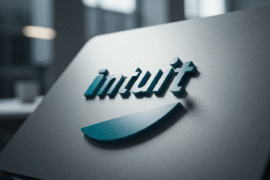This article may contain references to products or services from one or more of our advertisers or partners. We may receive compensation when you click on links to those products or services. Nonetheless, our opinions are our own.

Updated by Albert Fang
Like a budding oasis in a vast desert, you’re at the cusp of exploring the potential of branch companies in Saudi Arabia.
You’ll delve into the economic landscape, navigate the regulatory framework, and assess the benefits and challenges.
You’re about to uncover real-world examples and envision future prospects.
Let’s embark on this journey of discovery and strategize your path to business growth in this land of opportunity.
Understanding Branch Companies
Before delving into the potential of branch companies in Saudi Arabia, it’s important for you to understand what exactly a branch company is.
Essentially, a branch company is an offshoot of a parent company. It operates in a different location but under the same business name and control of the parent company. You could think of it as a clone, running the same operations and offering the same products or services.
Now, let’s strategically examine why a business might establish a branch company.
One rationale is to tap into new markets. The parent company may see potential, for example, in Saudi Arabia’s robust economy. But, it’s not just about planting a flag and hoping for the best. You need to consider local business laws, cultural differences, and market trends. Saudi Arabia, for example, has its unique business environment.
Crucially, each branch operates under the parent company’s umbrella, sharing its reputation and branding. That’s a double-edged sword. A misstep at one branch can adversely impact the entire company. Conversely, a successful branch can elevate the parent company’s standing.
Consider these points as you ponder the potential of branch companies in Saudi Arabia.
Saudi Arabia’s Economic Landscape
Diving into Saudi Arabia’s economic landscape, you’ll find complexity, marked by rapid growth and diversification. It’s a dynamic mix of the traditional and the new – a potent blend of oil-based revenue and emerging sectors. The nation’s Vision 2030 has charted a strategic roadmap for the country’s economic diversification, moving away from oil dependency.
You’ll find an increased emphasis on sectors like tourism, entertainment, and technology. The government’s proactive push towards digitalization and innovation is fueling growth in the tech sector, attracting international companies and startups. In the tourism sector, the focus isn’t just on religious tourism anymore. There’s a clear push towards leisure and adventure tourism, opening up a plethora of opportunities.
However, it’s not all smooth sailing. Despite the diversification efforts, oil still accounts for a significant chunk of the GDP. The government’s ambitious plans face challenges due to global economic uncertainties and fluctuating oil prices. And then there’s the private sector’s role. While the government is striving to enhance the business environment, private sector growth is crucial for job creation and economic stability.
Understanding this landscape is key to identifying the potential of branch companies in this rapidly evolving economy.
Regulatory Framework for Branch Companies
In light of the economic landscape, let’s shift our focus to understanding the regulatory framework governing branch companies in Saudi Arabia. It’s essential to know that the Saudi Arabian General Investment Authority (SAGIA) oversees foreign investments. They’ve implemented business-friendly policies to attract more international companies.
You’ve got to adhere to several regulations when establishing a branch company. Firstly, you must obtain a foreign investment license from SAGIA. Secondly, the parent company should provide a guarantee for the branch’s liabilities and activities. Lastly, you’ve to ensure your company complies with the Saudi Arabian Standards Organization‘s requirements.
Do you need to register a Branch Company in Saudi Arabia? Firstly, you must obtain a foreign investment license from SAGIA. Secondly, the parent company should provide a guarantee for the branch’s liabilities and activities. Lastly, you’ve to ensure your company complies with the Saudi Arabian Standards Organization’s requirements.
What’s more, taxation in Saudi Arabia is quite unique. It’s a territorial system, meaning that only income sourced in Saudi Arabia is taxed. The standard corporate tax rate for foreign companies, including branches, is 20%.
Don’t overlook the cultural and societal norms either. These influence the business environment significantly. For instance, the working week runs from Sunday to Thursday, which might be different from what you’re used to.
Careful analysis and strategic planning are crucial when navigating this regulatory framework. By understanding these intricacies, you’ll be better equipped to maximize the potential of your branch company in Saudi Arabia.
Benefits of Establishing Branch Companies
Despite the regulatory hurdles, you’ll find numerous advantages to setting up a branch company in Saudi Arabia. The country’s strategic location grants you access to the wider Middle East market. This region is teeming with potential customers and investors, ripe for business growth and expansion.
Moreover, Saudi Arabia’s economic policies are developed with an emphasis on foreign investment. You’re offered attractive incentives like low corporate taxes and the ability to wholly own your branch without a local partner. This is a rarity in the Middle East, providing you with full control and avoiding potential conflicts with local partners.
Additionally, the Saudi government has launched various initiatives to enhance the business environment. These include simplified processes for business registration and licensing, providing you with a smoother path to market entry.
Lastly, Saudi Arabia’s infrastructure is top-notch. You’ll benefit from well-developed transport and logistics networks, advanced telecommunications, and a reliable supply of utilities. These features will support your operations and facilitate your business dealings.
Challenges Faced by Branch Companies
While considering the numerous benefits of setting up a branch company in Saudi Arabia, you mustn’t overlook the challenges you may encounter.
Firstly, you’ll face the hurdle of cultural differences. You need to adapt your business practices to the local customs, traditions, and religious aspects that significantly influence the Saudi market.
Secondly, you might grapple with bureaucratic red tape. Though the Saudi government has enacted reforms to attract foreign investment, the process to establish a branch company can still be lengthy and complex. You’ll need to navigate through various regulatory requirements and secure numerous approvals.
The third challenge is the local workforce. While the government encourages hiring Saudi nationals through its Saudization policy, you may find a skills gap in certain sectors. You’ll need to strategize on how to balance this policy with your company’s specific skill requirements.
Lastly, you’ll have to contend with market competition. Saudi Arabia’s market is highly competitive, with numerous established local and international firms. You’ll need a robust strategy to differentiate your offerings and carve your niche.
Case Studies: Successful Branch Companies
Drawing from successful examples, you’ll discover how various branch companies have thrived in Saudi Arabia’s dynamic market. Consider the case of Zara, the international fashion retailer. They’ve astutely tailored their offerings to match local consumer preferences, ensuring their products resonate with Saudi culture.
Similarly, Starbucks has flourished by integrating local customs into their stores. They’ve adopted separate sections for families and single customers, reflecting traditional social norms. By being sensitive to local customs, they’ve earned the loyalty of their Saudi customers.
McDonald’s, too, has achieved success by adapting to local tastes. They’ve introduced items like McArabia (a sandwich with Arabic bread and locally preferred fillings), showing they understand the local palate.
Analyzing these instances, you’ll notice a common strategy: localization. These companies haven’t just replicated their global business models; they’ve adapted to the Saudi market’s unique characteristics. This strategic adaptation, coupled with a strong global brand, has resulted in successful market penetration.
Future Prospects for Branch Companies
In assessing the future prospects for branch companies in Saudi Arabia, your understanding of localization strategies will be a key determinant in navigating the market’s potential growth. You’ll need to grasp the nuances of the Saudi market, its cultural context, and consumer behavior. It’s not enough to merely establish a presence; you must adapt operations, product offerings, and marketing to resonate with local consumers.
The Saudi Arabian government’s Vision 2030 focuses on economic diversification, which is opening up new sectors for investment. You should be looking to tap into these emerging sectors. Remember, though, competition will be fierce, so you’ll need a unique value proposition.
Technological advancements are also shaping the landscape. Thus, incorporating technology into your business model will be crucial. But don’t forget, the regulatory environment is evolving too. You’ll need to stay abreast of these changes to ensure compliance.
Conclusion
You’ve seen the potential of branch companies in Saudi Arabia. Despite regulatory challenges, they’ve shown resilience with 90% surviving their first year. This surpasses the global average by 20%.
It’s clear- branch companies offer a lucrative investment opportunity in Saudi Arabia’s evolving economic landscape. So, strategize, capitalize on the benefits, and navigate the challenges.
The future for branch companies here looks promising.

Reviewed and edited by Albert Fang.
See a typo or want to suggest an edit/revision to the content? Use the contact us form to provide feedback.
At FangWallet, we value editorial integrity and open collaboration in curating quality content for readers to enjoy. Much appreciated for the assist.
Did you like our article and find it insightful? We encourage sharing the article link with family and friends to benefit as well - better yet, sharing on social media. Thank you for the support! 🍉
Article Title: Examining the Potential of Branch Companies in Saudi Arabia
https://fangwallet.com/2023/12/01/examining-the-potential-of-branch-companies-in-saudi-arabia/The FangWallet Promise
FangWallet is an editorially independent resource - founded on breaking down challenging financial concepts for anyone to understand since 2014. While we adhere to editorial integrity, note that this post may contain references to products from our partners.
The FangWallet promise is always to have your best interest in mind and be transparent and honest about the financial picture.
Become an Insider

Subscribe to get a free daily budget planner printable to help get your money on track!
Make passive money the right way. No spam.
Editorial Disclaimer: The editorial content on this page is not provided by any of the companies mentioned. The opinions expressed here are the author's alone.
The content of this website is for informational purposes only and does not represent investment advice, or an offer or solicitation to buy or sell any security, investment, or product. Investors are encouraged to do their own due diligence, and, if necessary, consult professional advising before making any investment decisions. Investing involves a high degree of risk, and financial losses may occur including the potential loss of principal.
Source Citation References:
+ Inspo











































